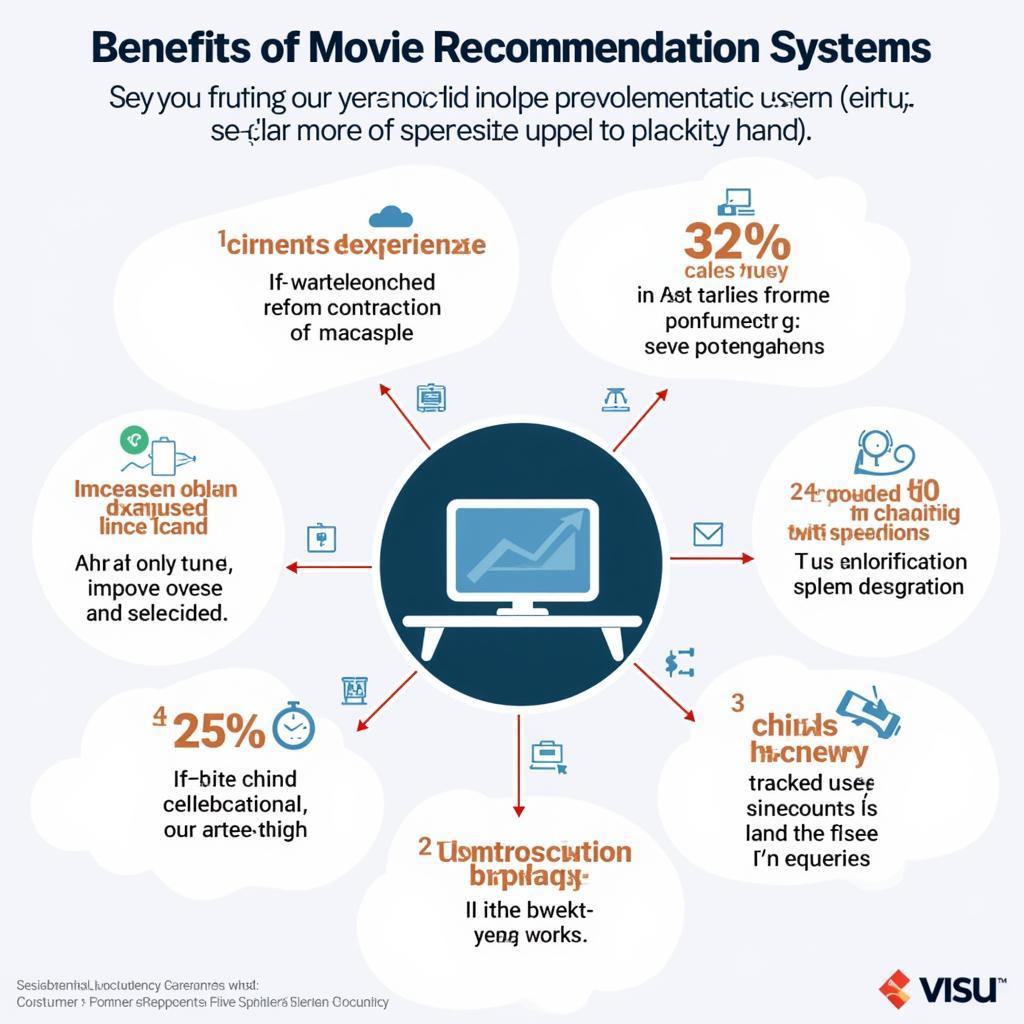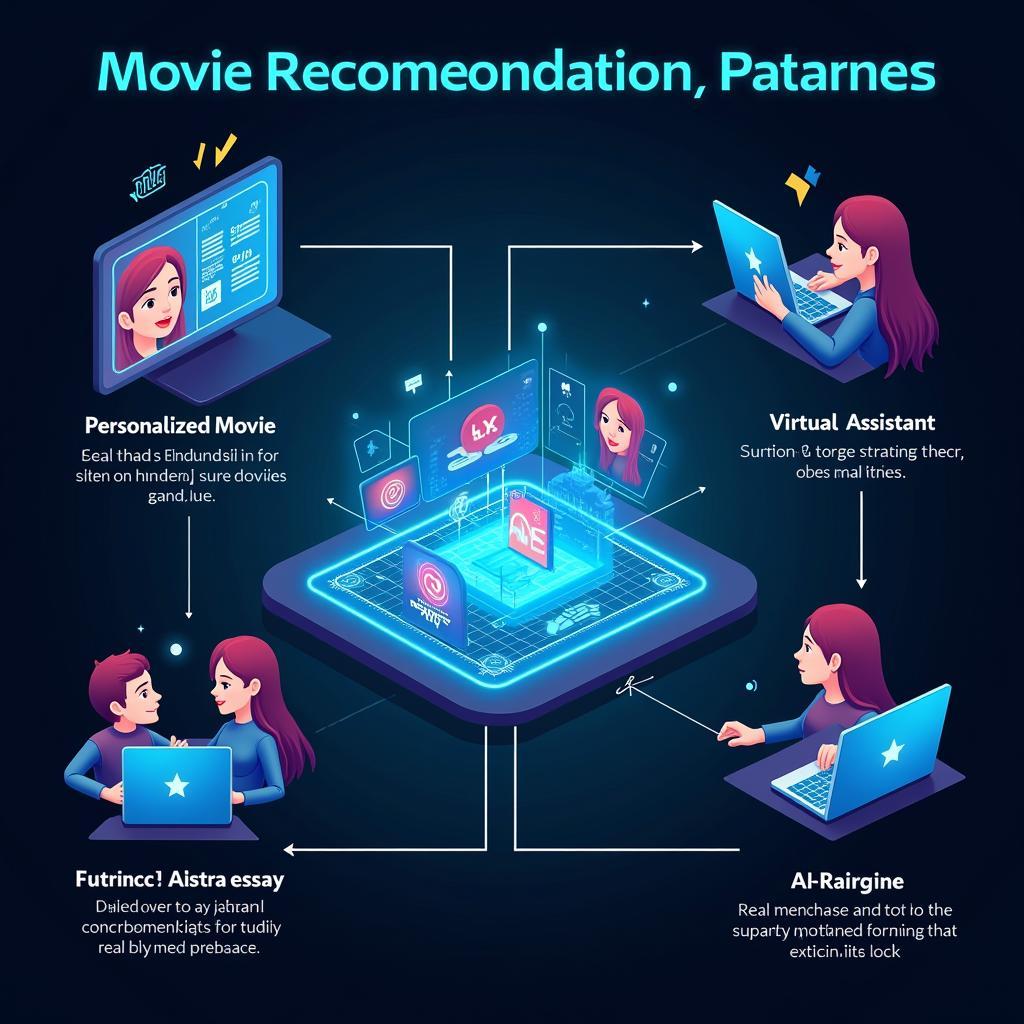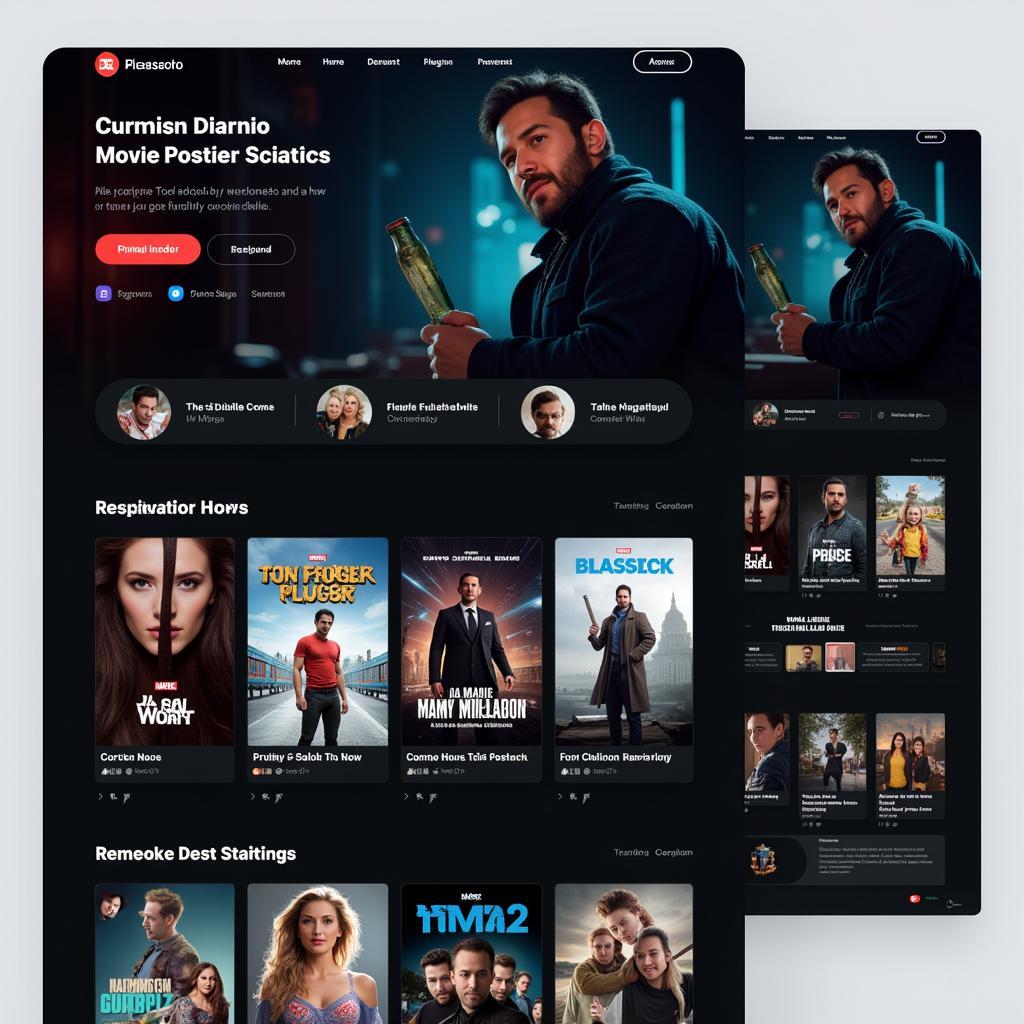A Movie Recommendation System Project Report is a crucial document that details the development and evaluation of a system designed to predict and suggest movies that users might enjoy. This report not only showcases the technical prowess involved but also serves as a valuable resource for understanding user preferences and enhancing the movie-watching experience. From data collection and algorithm selection to model training and evaluation, a comprehensive report covers every aspect of the project.
Diving Deep into Recommendation Systems
Recommendation systems have become an integral part of online platforms, particularly in the entertainment industry. These intelligent systems analyze user behavior, preferences, and historical data to offer personalized movie suggestions, helping users discover hidden gems and maximizing their enjoyment on platforms like Movie USA Full HD. Imagine effortlessly finding your next cinematic obsession – that’s the power of a well-designed recommendation system.
Understanding the Core Components of a Movie Recommendation System Project Report
A typical movie recommendation system project report encompasses several key components:
- Introduction: This section provides a brief overview of the project, its goals, and the importance of movie recommendation systems in the digital age.
- Literature Review: A review of existing recommendation system techniques and algorithms, highlighting their strengths and limitations.
- Dataset Description: Detailed information about the movie dataset used for training and evaluation, including its size, features, and source.
- Methodology: Explanation of the chosen recommendation algorithm(s), data preprocessing techniques, and model training procedures. Popular algorithms include collaborative filtering, content-based filtering, and hybrid approaches.
- Implementation: Details on the technical implementation of the system, including programming languages, libraries, and frameworks used.
- Evaluation: Presentation of the evaluation metrics used to assess the system’s performance, such as precision, recall, and F1-score. Results are typically presented with charts and graphs.
- Results and Discussion: Analysis of the experimental results, highlighting the system’s effectiveness and limitations.
- Conclusion: A summary of the project’s findings, its contributions, and potential future directions.
Why are Movie Recommendation Systems Important?
In a world saturated with content, movie recommendation systems play a vital role in helping users navigate the vast sea of choices and discover movies tailored to their tastes. They not only enhance user satisfaction but also contribute to increased engagement and retention on streaming platforms like Movie USA Full HD. Think of it as having a personal movie concierge at your fingertips.
How do Movie Recommendation Systems Benefit Streaming Platforms?
- Personalized Experience: Offers tailored recommendations that cater to individual user preferences.
- Increased Engagement: Encourages users to explore more content and spend more time on the platform.
- Improved Discovery: Helps users discover hidden gems and movies they might not have found otherwise.
- Enhanced User Satisfaction: Provides a seamless and enjoyable movie-watching experience.
- Data-Driven Insights: Offers valuable data about user preferences and viewing habits, which can be used to improve content acquisition and marketing strategies.
 Benefits of Movie Recommendation Systems
Benefits of Movie Recommendation Systems
Building Your Own Movie Recommendation System: A Step-by-Step Guide
Want to create your own movie recommendation system? Here’s a simplified guide to get you started:
- Gather Your Data: Collect movie data from sources like IMDB, TMDB, or create your own dataset.
- Choose an Algorithm: Select a suitable recommendation algorithm, such as collaborative filtering or content-based filtering.
- Preprocess Your Data: Clean and prepare your data for model training.
- Train Your Model: Train your chosen algorithm on the prepared dataset.
- Evaluate Your Model: Assess the performance of your model using relevant metrics.
- Deploy and Iterate: Deploy your model and continuously iterate to improve its accuracy and effectiveness.
Expert Insights on Movie Recommendation Systems
John Smith, a leading data scientist at FlixTech, emphasizes the importance of data quality in building effective recommendation systems: “Garbage in, garbage out. High-quality data is the foundation of any successful recommendation system. Ensure your data is clean, accurate, and relevant to achieve optimal performance.”
Jane Doe, a renowned AI researcher at MovieAI, highlights the role of continuous learning: “Recommendation systems are not static. They should continuously learn and adapt to evolving user preferences. Regularly retraining your model with fresh data is crucial for maintaining accuracy and relevance.”
Conclusion
A movie recommendation system project report is a testament to the power of data and algorithms in enhancing the entertainment experience. By understanding the key components, benefits, and development process, you can appreciate the complexity and value of these intelligent systems. From personalized suggestions to improved discovery, movie recommendation systems are transforming the way we consume and enjoy movies on platforms like Movie USA Full HD.
 Future of Movie Recommendation Systems
Future of Movie Recommendation Systems
FAQ
- What is a movie recommendation system?
- How do recommendation systems work?
- What are the different types of recommendation algorithms?
- What are the challenges in building accurate recommendation systems?
- How can I evaluate the performance of a recommendation system?
- What are some real-world examples of movie recommendation systems?
- What is the future of movie recommendation systems?
Need assistance? Contact us at Phone Number: 02933444567, Email: nanathemovies@gmail.com Or visit our address: RF55+W7R, Lê Hồng Phong, Vị Tân, Vị Thanh, Hậu Giang, Vietnam. We have a 24/7 customer service team.

